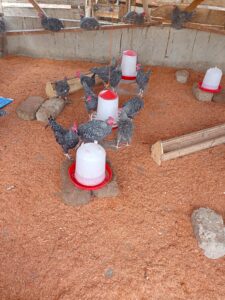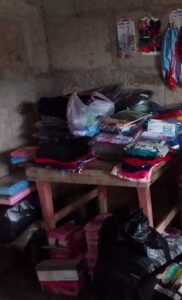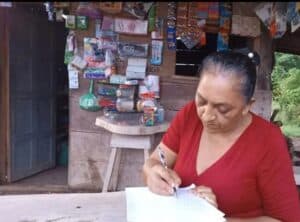Three Fresh Graduates Get an Exceptional Opportunity for Agribusiness Success
Story by Bernard Frimpong Bannor – Agriculture & Entrepreneurship Program Officer

Program introduction meeting at KAC
“This is a great opportunity for potential entrepreneurs. In fact, it is the best thing to ever happen to a fresh graduate in Ghana. The narrative would be different if we had this kind of opportunity in the past,” -Professor Sarkodie, Dean of the Faculty of Agriculture, KNUST
Unprepared
Ghana’s young adults are facing a big problem: unemployment. The failure of graduates to find jobs after the mandatory one year national service period is alarming. The problem of graduate unemployment is a major developmental challenge in Ghana and poses a serious threat to national security. Unfortunately, teaching and learning in Ghana is dominated by classroom lectures and presentations with limited opportunities for practice. This causes the ripple effect for thousands of tertiary students who have little or no practical skills when entering the job market each year.

Students presenting their proposal
To combat this issue, many stakeholders have thus advocated for the promotion of improved agricultural practices and entrepreneurial skills development among the youth in Ghana. However, agro-enterprise skills development in Ghana needs to be brought from discussion and put into practice.
It is against this backdrop that Self-Help International introduced the Agricultural Entrepreneurs-in-House Program. The program seeks to train, guide, and provide the necessary financial resources to ensure graduate entrepreneurs develop and implement agribusiness proposals leading to employment. Self-Help International has succeeded in bringing together three key institutions in Ghana, each notable for agricultural training, to partner in the implementation of this program. A Memorandum of Understanding has been signed with these three institutions: Kwame Nkrumah University of Science and Technology (KNUST), Kumasi Institute of Tropical Agriculture (KITA) and Kwadaso Agriculture College (KAC). According to the terms of the agreement, Self Help International is responsible for providing resources such as land, inputs, startup capital, basic farm tools, hands-on entrepreneurial training, and post training support. Partner institutions are responsible for coaching students to develop workable proposals for contests, facilitating selected students’ National Service Placement, and following up on performance of trainees.
Putting It Into Play
In the first week of March 2018, final-year General Agriculture students at the three partner institutions were informed about the aims and objectives of the program. Students were also made aware of the available resources and constraints they must consider in proposing a viable and sustainable business to implement the plan.
When the deadline arrived on March 31, 2018, six proposals, ranging from crop production to livestock, from five teams, were submitted for panel evaluation. The evaluation team is made up of representatives of all partner institutions. Those who represented Self-Help International were Benjamin (Country Director), Victoria (Programs Coordinator), Emmanuel (Project Officer, Youth in Agriculture), Bernard (Project Officer, Agricultural Entrepreneurship) and Zakaria (Agricultural Entrepreneurship Training Centre Manager). The others included Dr. Francis Appiah, a Senior Lecturer of the Faculty of Agriculture at KNUST, Antwi Richard, the Registrar of KITA, and Akoto Bright, the Vice Principal of KAC.

Selected students assessing project site
The team was tasked with reviewing the program implementation via quarterly meetings. Two successful meetings have been held by the team as of May 23, 2018, leading to the selection of three promising students: Justice, Denise, and Evans. The three students will be supported to jointly pursue a single plan during the national service period beginning in September 2018 and ending in August 2019. Justice is a fresh graduate of HND Tropical Agriculture from KITA, Denise is from the Department of Crop and Soil Science at KNUST, and Evans is a product of the Department of Animal Science, also from KNUST.
The selected proposal seeks to effectively utilize the available one acre land for producing maize, vegetables, and small farm animals like rabbits using an eco-friendly and multifunctional system. Training needs assessments have been conducted by the evaluation team to identify the students’ current knowledge and skills in relation to the proposed plan. Further entrepreneurial training is being developed to address the skill gaps of the selected graduates. It will focus on topics including conservation agriculture, research design and innovations, financial education, business planning, budgeting, procurement, market analysis, profitability analysis, loan analysis, entrepreneurship, and nutrition. Teaching methods will include hands-on participation, demonstrations, project design and implementations, and audiovisuals.
“This is a great opportunity for potential entrepreneurs. In fact, it is the best thing to ever happen to a fresh graduate in Ghana. The narrative would be different if we had this kind of opportunity in the past,” said Professor Sarkodie, Dean of the Faculty of Agriculture, KNUST, during a program introduction exercise at the University.




